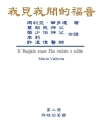In ‘Old Testament Legends, ‘ M. R. James curates a remarkable collection of medieval biblical tales, interweaving ancient texts with his masterful narrative style. Known primarily for his ghost stories, James channels his expertise into a scholarly yet accessible examination of these legends, drawing from a range of sources that reflect the rich tapestry of Christian and Jewish tradition. His lucid prose combines historical rigor with an engaging narrative, situating these stories within their cultural context and exploring their implications for faith and morality. Through a keen lens, James invites readers to delve into the complexities of the Old Testament, revealing layers of interpretation that have resonated through the ages. M. R. James, an accomplished medieval scholar and liturgical expert, imbues his work with a profound understanding of religious texts and their historical frameworks. His academic background, particularly his exploration of antiquarian manuscripts, serves as a crucial influence in shaping this collection. By bridging literature and theology, James not only seeks to illuminate these ancient narratives but also prompts readers to reflect upon the meanings and lessons they continue to offer in contemporary society. ‘Old Testament Legends’ is highly recommended for scholars, theologians, and literary enthusiasts alike. James’s unique perspective enriches the reader’s understanding of biblical narratives, making this book a valuable addition to any library. It serves as an invitation for deeper contemplation and appreciation of the stories that have shaped Judeo-Christian thought across centuries.
Giới thiệu về tác giả
Montague Rhodes James, often referred to as M. R. James, was an esteemed British medieval scholar and provost of King’s College, Cambridge (1905-1918), and later of Eton College (1918-1936). He was born on August 1, 1862, in Goodnestone Parsonage, Kent, England, and passed away on June 12, 1936. Renowned for his work in medieval manuscripts and biblical apocrypha, James’ scholarly acumen was matched by his talent as a writer, particularly of ghost stories which have earned him an enduring reputation in the genre of supernatural fiction. His seminal work on religious texts includes ‘Old Testament Legends, ‘ a collection published in 1913 that extends beyond mere translation; it reflects his keen interest in biblical apocrypha and hagiography, tailored for a broader audience keen on theology and folklore. James’ literary style is characterized by understated horror, meticulous setting, and an adept use of antiquarian knowledge to evoke a chilling atmosphere. His ghost stories often hinge on the discovery of ancient artifacts or manuscripts that unleash spectral horrors, a theme that mirrors his academic life. As a wordsmith, James was influential, moulding the ghost story genre into a form recognized for its subtlety and sophistication. Beyond his fictional works, his scholarly contributions remain invaluable to enthusiasts of medieval studies and the history of religion.












